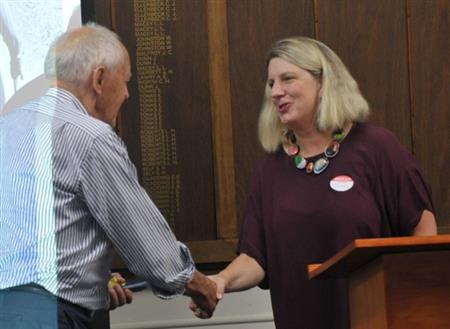Dr. Susan Morton. Growing Up in NZ
Susan Morton is a specialist in Public Health Medicine. She is the Director of the University of Auckland Centre for Longitudinal Research. Susan has been the Director of the longitudinal study of NZ children and families (Growing Upin New Zealand) since its inception in 2005.
This study follows 6,853 children (born 2009-2010) in the context of their families and the NZ environment. Her team engages with 16 government agencies to provide evidence to inform cross-sectoral policies to improve population wellbeing and solutions to reduce inequities in life course outcomes.
Early information from Growing Up in New Zealand, collected in the first two years of the children’s lives, provides insight into areas like:
- vulnerable children
- diverse family structures and resources
- general health and wellbeing, including immunisation, breastfeeding, nutrition, physical activity and poor early health
- interaction with health and other key services
- family housing and mobility
- detailed measures of the home environment including language, literacy and school readiness
- paid parental leave and maternal return to the workforce
- child care
- engagement with early childhood education.
Things that have been learned so far from this study include:
- Nearly half our children identify with more than one ethnic group and one third have at least one parent who did not grow up in New Zealand.
- Today’s children are “digital natives” spending an average of two hours “on-screen” every day. However it appears that the rules put in place around content and timing are more important than the number of hours engaged.
- Persistent poverty is a reality for one in ten children in their first two years of life and four in ten families experience material hardship at least once during that time. This means sacrifices like cutting back on heating and food to pay for essential things like rent.
- Around 40% of the births were unplanned so parents did not have the opportunity to make important health and lifestyle changes before pregnancy.
- Two out of three children moved house at least once during their preschool years, with some moving as often as 12 times. Nearly half live in rental accommodation.
- At age four, 97 percent of children spend time away from their parent in, e.g., Early Childhood Education or organised home-based care.
- One in ten children has been bullied or picked on regularly since the age of two.
- 92 percent of children were fully immunised by age two and 85 percent by age four. A small but significant number of children had not had or arranged their free “before-school check” by the time they were four and a half years old.
- One in seven four-year-old children are classified as overweight or obese. These children are likely to engage in more screen-time and consume more soft drinks than children of normal weight.
- One in five children are living in extended family situations when they start school and more are living in single parent households than when they were two years old.
The study is designed to continue until the children turn 21. Growing Up in New Zealand leads the way in international longitudinal studies by starting before the baby is born.
